#floral patterns
Explore tagged Tumblr posts
Text

Happy Pride!!! 🌈🥳🥰 This is my non binary beetle. To my NB siblings, I see you, I appreciate you and I love you! You are important and valid and have value in whatever shape or form you chose for yourself, and no one can tell you otherwise 💛🤍💜🖤
I also have a trans 🏳️⚧️ butterfly in the works and please see under the cut for the acrylic and gouache version of this from last year. 🖤
⋆。°✩*ੈ✶⋆.˚✩‧₊˚⋆˚☆˖°⋆。° ✮˖ ࣪ ⊹⋆.˚⋆˙⟡⋆✴︎˚。⋆⊹.˚⟡ ݁₊˚⊹⋆☆˖°
If you enjoy my work, please consider supporting me on Ko-fi 👛🫙✨🖤 Thank you! 🥰
The original was done in gouache and pencil, with acrylic detail and posca pens. Which I then scanned in and added a digital background. The other two versions are without a shadow and a different strength shadow, but both digital like the one above 🥰



#queer pride#trans pride#lgbt pride#pride#gay pride#happy pride 🌈#lgbtq community#lgbtq#lgbtqia#lgbtq positivity#non binary#nonbinary#nb#artists on tumblr#kz draws#digital artist#digital art#illustration#art#folk artist#folk art#folk pattern#floral patterns#floral art#floral#beetle#beetle art#insect art#insects#bugs
28 notes
·
View notes
Text
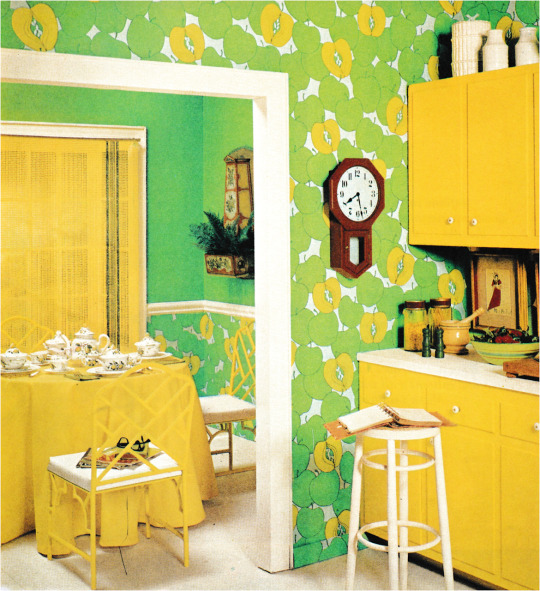
Home Decor, 1973
#70s kitchens#70s dining rooms#70s decor#70s interiors#1973#1970s#70s#seventies#early 1970s#70s home decor#70s kitchen decor#70s dining room decor#home ideas#decor ideas#kitchen ideas#dining room ideas#70s floral#floral patterns#70s retro modern
421 notes
·
View notes
Photo

"The Vision Unfolds Its Landscape" (1958) by Max Walter Svanberg - A surreal lithograph with a vibrant figure enveloped in floral complexity.
#max walter svanberg#surreal#pink#yellow#lithograph#1950s#floral patterns#black#1958#abstract figure
448 notes
·
View notes
Text



A patchwork quilt fit for a spring fairy picnic, with vintage floral fabric found at an antique shop. I finished this quilt top last spring. It only took me eight days to make, and then it took me another year to baste, hand quilt, and bind. Not that it actually took that long, it’s just that I kept putting it off for other projects. But such is how these things go sometimes!
142 notes
·
View notes
Text

A corner of my garden, gouache sketch by Claudine Lecoustre ©️2025
#garden#country#french#france#countryside#art#mixed border#gouache#wild flowers#daisies#hosta#watercolor#spring flowers#floral painting#floral patterns#artist on tumblr#artist on instagram#sketchbook#sketch#garden journal
50 notes
·
View notes
Text



Tucked in... My video, please credit if using!
#tw hands#plushies#plush stim#twee#twee stim#?#cottagecore#cottagecore stim#kidcore#kidcore stim#babycore#babycore stim#pink#pink stim#toys#toycore#green#green stim#floral patterns#yellow#yellow stim#stim#stims#stimmy#stim gifs#my gifs
41 notes
·
View notes
Text

🦇 Hexoween 6 - City of Devil🦇
🦇Roots of the Damned 🦇Gatekeeper of the Underworld 🦇Rotten Cavern 🦇Satan's Mask 🦇Forbidden Fruit 🦇Rivers of Hell 🦇Ghostly Blossoms
#myart#tradtional art#hexoween#hexoween 2024#city of devil#ghosts#demon skull#floral patterns#anilinky#illustration#halloween#artists on tumblr#watercolor pencil#moon#hell#i hate this hah#spooky season#bat kids
60 notes
·
View notes
Photo
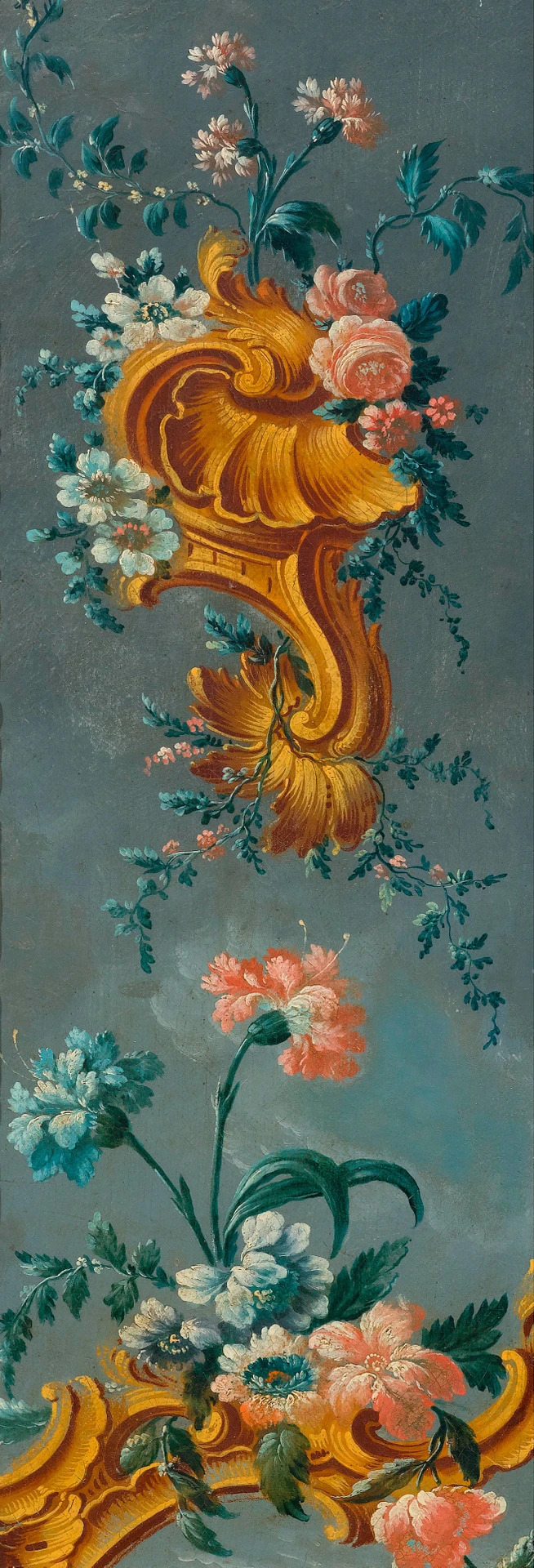

French school of the 18th Century Pair of works: Overdoors with floral decoration
#art#french art#european art#classical art#floral patterns#floral decoration#oil on canvas#fine art#fine arts#Mediterranean#europe#europa#european#culture
299 notes
·
View notes
Text

When flour bags became dresses…In the 1930s, during the harsh years of the Great Depression, survival required creativity — and kindness came in unexpected forms.
In the United States, flour and grain were shipped in cotton sacks. For struggling families, nothing went to waste — not even the packaging. Mothers began to turn those sacks into dresses for their daughters. But the plain fabric? It wasn’t much to look at.
Then something beautiful happened.
The Kansas Wheat Company saw what was going on… and they decided to help.
They began printing their sacks with floral patterns and bright colors — not just to ship wheat, but to offer dignity and beauty to those in need. Some even had sewing patterns printed directly on the fabric, ready to be cut and stitched.
And the ink? Designed to fade after one wash. Just like that, a flour sack became a summer dress, a Sunday outfit, a symbol of resilience.
Women didn't just sew for their children — some sold their handmade pieces to earn extra income, passing strength from one home to another.
This wasn’t just marketing.
It was compassion stitched into cotton. A silent gesture that said: We see you. You matter. You're not alone.
#gifts#decor#quilting#briar rose quilts#bedding#sewing#shopping#quilters of tumblr#crafts#holiday#dresses#flour sacks#1930s fashion#1930s style#1930s dress#1930s#kansas wheat company#the Great Depression#cotton sacks#floral patterns#cotton flour sacks#bright colors#upcycling#upcycle#repurpose#repurposed#reuse#reduce reuse recycle#creative reuse#adaptive reuse
12 notes
·
View notes
Text



Rhapsody in Reds, Gouache & Digital, 2025
⋆。°✩*ੈ✶⋆.˚✩‧₊˚⋆˚☆˖°⋆。° ✮˖ ࣪ ⊹⋆.˚⋆˙⟡⋆✴︎˚。⋆⊹.˚⟡ ݁₊˚⊹⋆☆˖°
If you enjoy my work, please consider supporting me on Ko-fi 👛🫙✨🖤 Thank you! 🥰
#artists on tumblr#kz draws#illustration#traditional art#art#acryla gouache#digital art#gouache illustration#mixed media#bugblr#bugs#bug art#insect art#insects#beetleposting#ladybug#entomology#entomology art#folk art#folk artist#floral patterns#floral art
23 notes
·
View notes
Text

Bedroom Decor, 1974
#70s bedrooms#70s homes#70s decor#70s interiors#1974#1970s#70s#seventies#mid 70s#bedroom design#bedroom decor#home decor#bedroom ideas#decor ideas#home ideas#70s floral#floral patterns#70s style#70s wallpaper
184 notes
·
View notes
Text
𓄯 CATS 𓃠

7 notes
·
View notes
Text
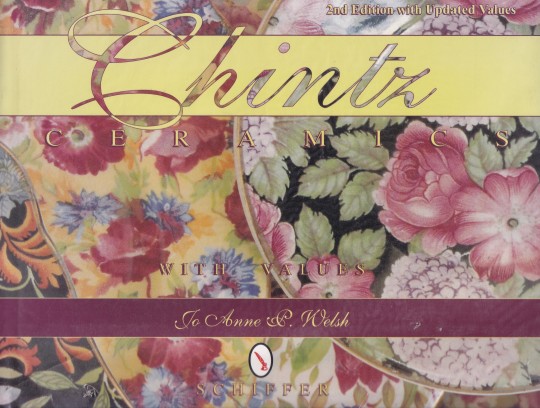
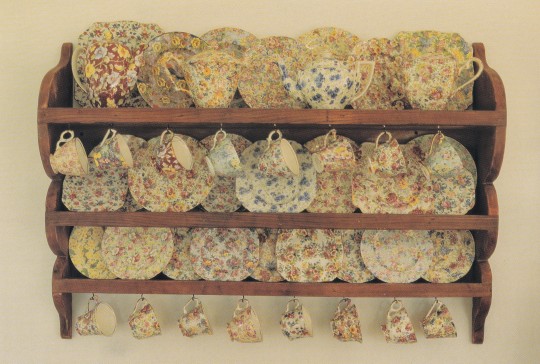

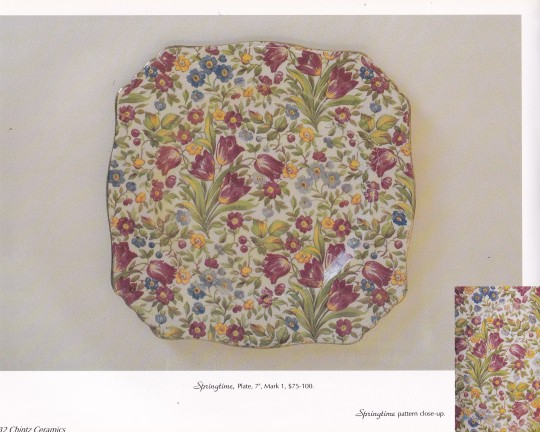
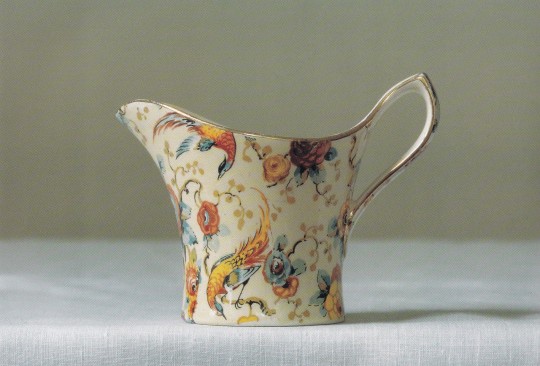
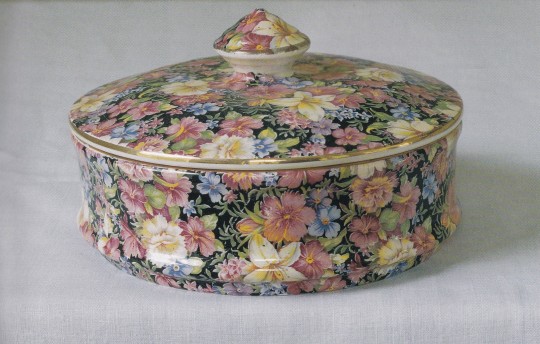
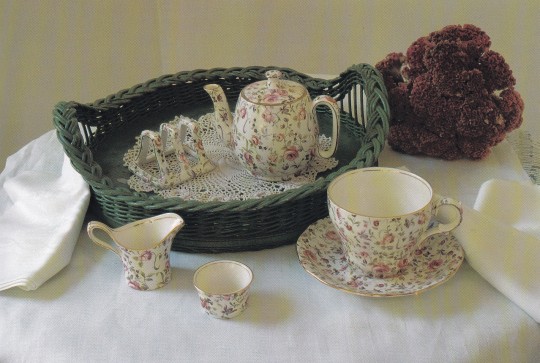


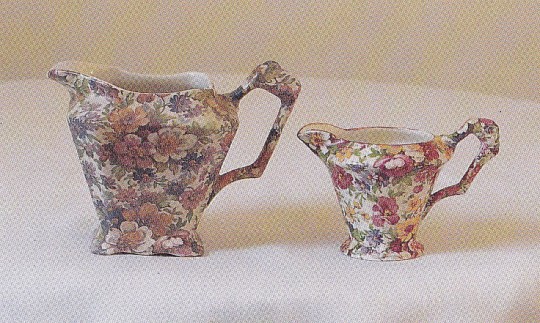
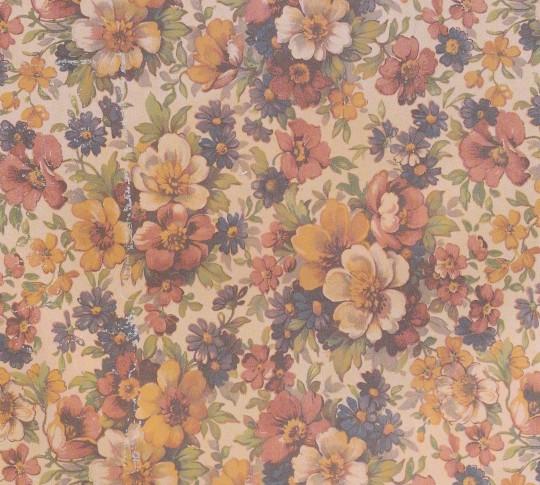
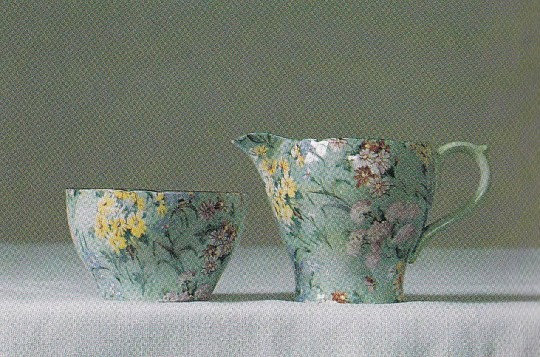
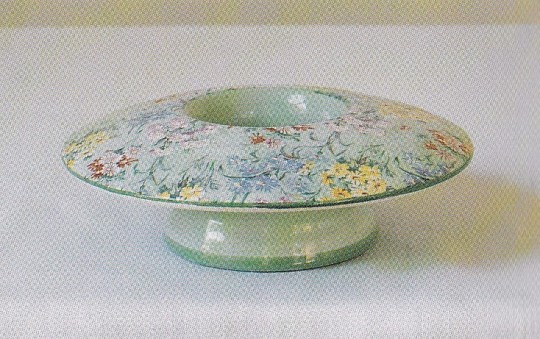
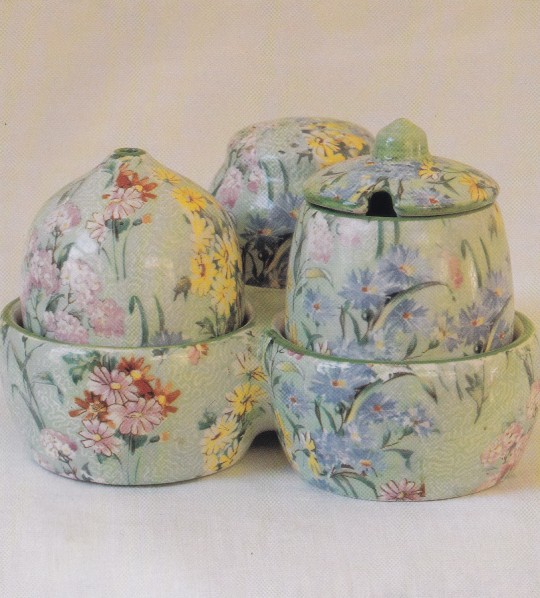
Chintz Ceramics
With Values 2nd Edition with Updated Values
Joe Anne P.Welsh
Schiffer Pub., Aglen PA 1998, 160 pages, 22x22,5cm, ISBN 0-7643-0451-8
euro 40,00
email if you want to buy [email protected]
Over 100 floral patterns adorning chintz ceramics.
Chintz ceramics were introduced in the late 19th century, and rose to great heights of popularity in the first half of the 20th century as they were exported around the world. This classic work, in its seconf edition, is better than ever for dealers and collectors. The brilliant floral bouquets adorning chintz ceramics are displayed in nearly 500 gorgeous color photographs. The major English chintz manufacturers, Royal Winton, James Kent, Lord Nelson, Shelley, Crown Ducal, and Empire, are discussed and many examples of their chintz wares are identified and shown. Over one hundred patterns are amply illustrated, including the popular DuBarry, Rosalynde, and Summertime patterns. Lesser known firms and American importers are also explored, along with the Japanese manufacturers of hand-painted chintz. Manufacturers' marks are identified and dated.
23/04/24
#Chintz Ceramics#floral patterns#floral bouquets#update values#designbooksmilano#ceramics books#fashionbooksmilano
20 notes
·
View notes
Text
Large Patterns for Hungry Bumblebees
ESP version ITA version
Imagine being a flower that needs to be pollinated and therefore needs to attract as many pollinators as possible. Now imagine being a bumblebee that, in a short time, must collect nectar from as many suitable flowers as possible. Surely, the bumblebee cannot move randomly among flowers hoping to find the right ones—that would be a waste of energy. At the same time, the flower must develop characteristics that attract specific pollinators.
Until recently, it was thought that bright colors and the scent of nectar were the main causes of pollinator attraction. But there seems to be more to it: hidden bullseyes in flower patterns play a significant role in attracting bees.
How did this discovery come about? Previous research had identified specific transcription factors and enzymes responsible for producing petal pigments and surface textures, but the initial processes that divide the petal epidermis into two distinct regions remained a mystery.
To understand the process, a group of researchers developed a method to dissect, prepare, and observe tiny hibiscus petals under a microscope. They discovered that, in the early stages of development, the petals have about 700 greenish cells, without the typical purple pigmentation and without differences in cell shape or size. As development progresses and the petal reaches 4,000 cells, purple pigmentation is still not visible, but a specific region appears where the cells are larger than their neighbors: this is the pre-pattern. These cells mark the position of the bullseye boundary—the line on the petal where the color changes from purple to white. Without a boundary, there's no bullseye. And without a bullseye? No pollination.
Using computational models, the scientists also discovered that the hibiscus can modify the size of the bullseye very early in the pre-patterning phase by regulating cell expansion or division later in development. This process determines the development of different colored regions, including the purple bullseye that attracts bumblebees.
So, what's the relationship between these essential insects and the hibiscus? Bumblebees have a clear preference for larger bullseyes and were also 25% faster in visiting flowers with larger bullseyes. This preference increases the efficiency of both bees and flowers; flight requires a lot of energy, and if a bumblebee can visit more flowers in less time, it's advantageous for both the insect and the plants.
The precision of natural designs plays a crucial role in the survival and evolution of species. Hibiscus trionum, for example, with larger bullseyes, likely attracts more pollinators, increasing its reproductive success. Species like Hibiscus richardsonii, on the other hand, are considered vulnerable and endangered, perhaps because they have small bullseyes and are less chosen by pollinators. Enhancing our knowledge of these floral patterns can help develop strategies to increase pollinator visits, which is fundamental for the success of crops that depend on pollination.
See you soon and Good Science!
Source


#Bees#Pollination#Flowers#Hibiscus#Hidden bullseyes#Floral patterns#Bumblebees#Attracting pollinators#Scientific discovery#Evolution#Botany#Drops of Science#Science#News#Natural Sciences
3 notes
·
View notes
Text


Nicole Barnette, {2006} Fourteen
#film#gif#nicole barnette#fourteen#2006#female filmmakers#short film#colour#bows#hands#2000s#usa#floral patterns
2 notes
·
View notes
Text
4 notes
·
View notes